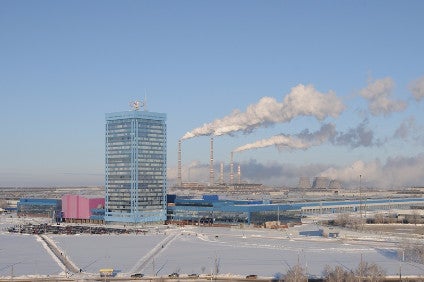
Samara’s automotive cluster is calling for a “comprehensive strategy” to develop local suppliers as Russia looks increasingly to add to its domestic attraction for overseas manufacturers and as the country emerges from recession.
Russia has been extremely hard hit in recent years from a severe downturn in demand triggered by international economic sanctions, a falling oil price and high inflation, but apart from the former influencer, rising energy prices are stabilising the economy.

Discover B2B Marketing That Performs
Combine business intelligence and editorial excellence to reach engaged professionals across 36 leading media platforms.
Significant pent-up demand is also contributing to a major up-tick in the Russian automotive sector, while the component manufacturing industries are also eyeing overseas markets as a way to expand.
“It all boils down to this: In order to advance localisation in Russia we need a comprehensive strategy to develop local suppliers,” said Cluster of Automotive Industry of the Samara Region, director general, Andrey Kraynov at the recent Russian Automotive Forum organised by Adam Smith Conferences in Moscow.
“Most components are still being imported because of some difficulties, it is hard to find a local supplier. Purchasing strategies of OEMS will usually prefer global suppliers because it is easier to work with those.
“The real level of localisation is around 50%-55%. New localisation programmes usually require new, modern equipment. Most local suppliers use equipment that is rather old and it is pretty hard to manufacture competitive equipment. Of course it has to be profitable, so prices are not always competitive.
“There are a limited number of suppliers who can meet requirements of customers today. With local suppliers their production volumes are often lower compared to global suppliers and of course they don’t have certain competences. You need to localise global suppliers and we need to develop local suppliers and sub-suppliers, Tier 1, Tier 2 and so on. We need systemic support for local suppliers.”
The Samara cluster – home to the automotive powerhouse of Avtovaz – groups 55 suppliers and three car plants generating around 14% of the region’s GDP.
The cluster employs 10% of the total workforce or 50,000 people, while total turnover reached EUR3.3bn (US$4bn) in 2016.
“I think we need a wider range of tools for export support,” added Kraynov. “With 16 suppliers we signed roadmaps for the next two to three years which include those suppliers as future suppliers for Renault.
“Last year [there were] around RUB40bn in subsidies for transportation costs. We want to include clients from other regions, other clusters and even other countries.”
Areas in which Samara suppliers specialise – among many others – include:
- All kinds of cold stamping
- Machining of metal components (turning, milling, polishing, thread-rolling and gear cutting)
- Metal casting
- Heat treatment of metal components
- Welding of metals, including aluminium
- Laser and plasma cutting of metals (computer lettering)
- Intense deformation of metals
- Injection moulding, including bi-component
- Assembly and check of system units (steering systems, engine starting systems, windshield wipers, window regulators, door locks, suspension, clutch, tanks, climate control, seats, electric motors)






